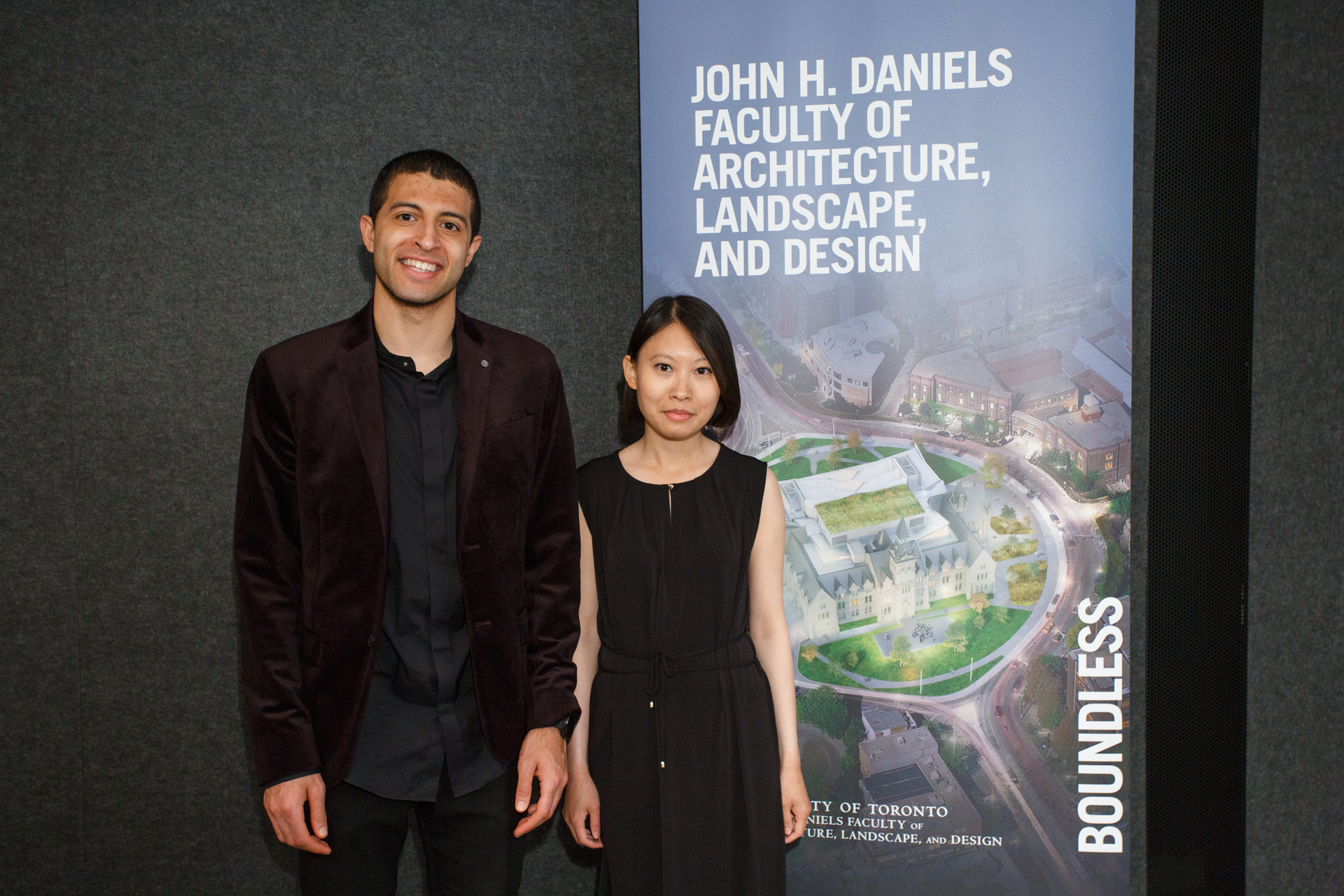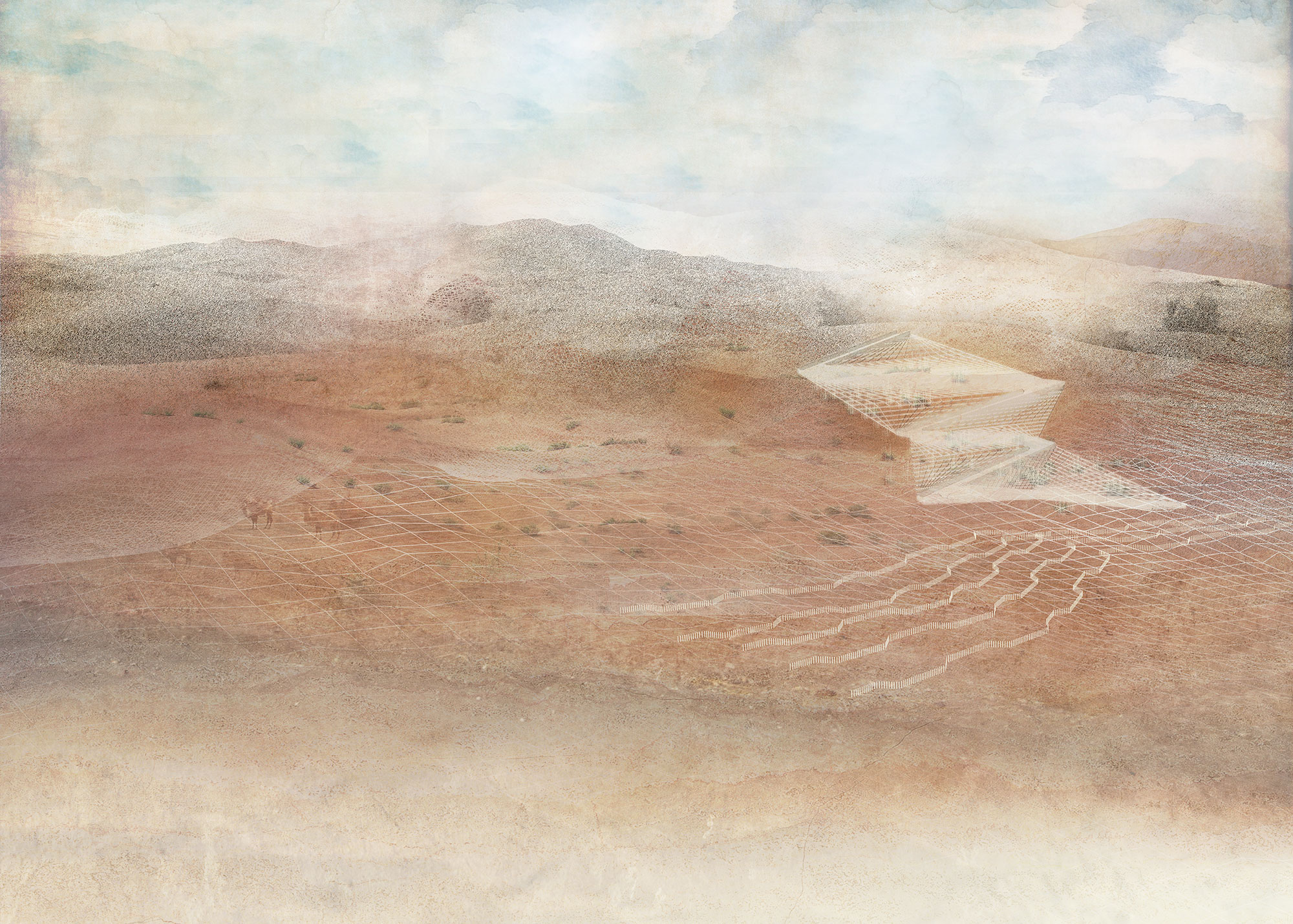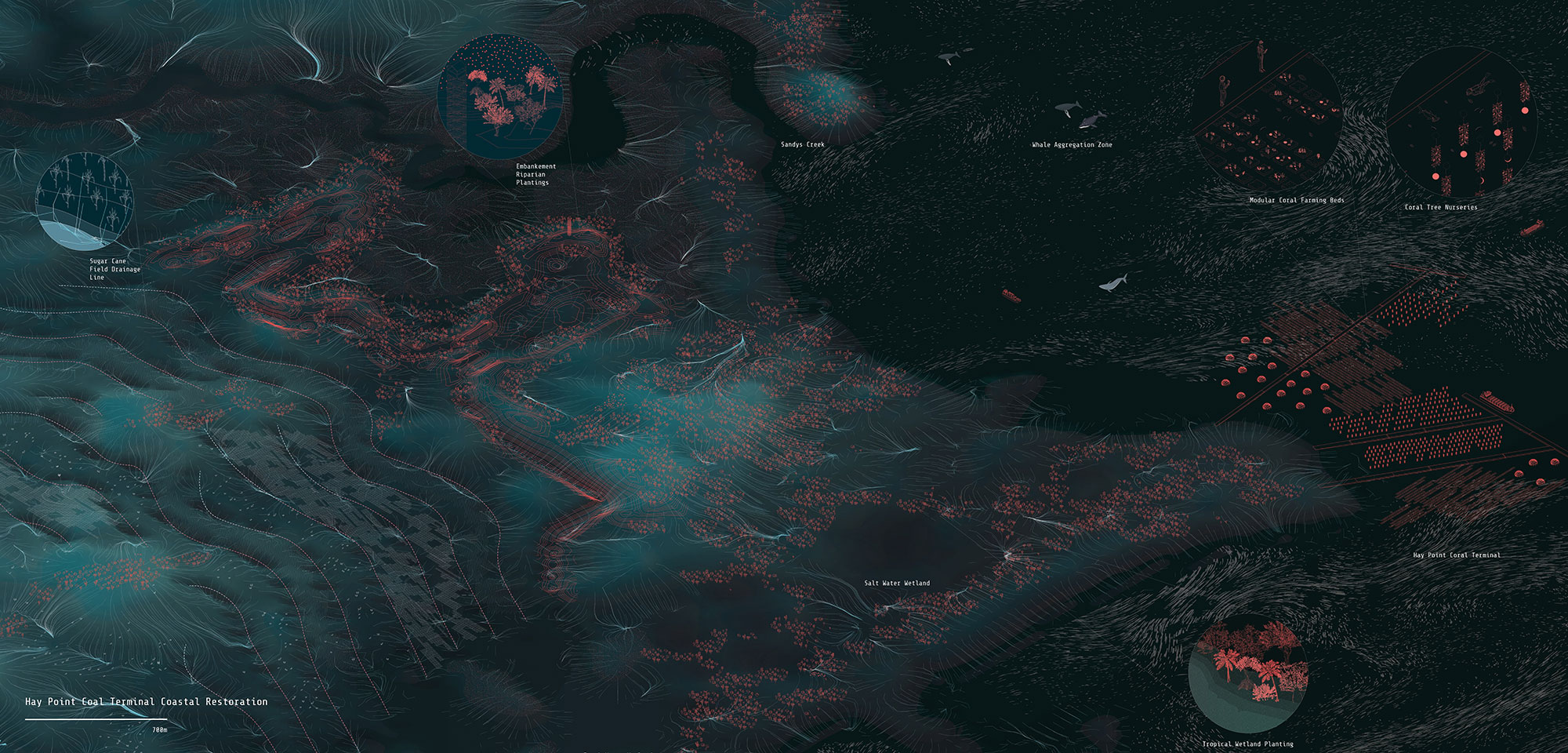
29.09.19 - Meet the recipients of the 2019 John E. (Jack) Irving Prize
The John E. (Jack) Irving Prize, established by Anne C. I. Oxley and John K. F. Irving to honour the legacy of their late father, is awarded annually to two outstanding students registered in the Master of Landscape Architecture program at the Daniels Faculty.
In keeping with the conservationist ethos of the prize's namesake, Jack Irving, the money is intended for use in the development of thesis projects that achieve integration between the fields of landscape ecology and landscape architecture.
Here's what the 2019 award recipients accomplished:

Proposed intervention strategies for sand dune stabilization, recreational access, and vegetation growth. Image from Waiyee Chou's thesis project. Advised by assistant professor Fadi Masoud.
Waiyee Chou (MLA 2019)
Waiyee's thesis project investigated the possibility of a water conservation initiative in the Turpan Depression, a desert region where irrigation is provided with karez wells, an ancient technology that channels runoff to Turpan's population centres using a network of underground canals.
Waiyee's research examined ways of cleaning and generating water in the Turpan region, including grey-water recycling and filtration, capturing runoff from snow-covered sand dunes, and atmospheric water generation.
"This award was of tremendous assistance in helping me to produce a publication of my research findings," Waiyee says. "I plan to seek out more opportunities to work on initiatives that link cultural heritage to ecological resilience."

Australia's Great Barrier Reef from above. Image from Hadi El-Shayeb's thesis project. Advised by assistant professor Fadi Masoud.
Hadi El-Shayeb (MLA 2019)
Hadi earned an undergraduate degree in environmental studies at the University of Waterloo. When he was entering the final year of his graduate landscape architecture program at Daniels, he decided to revisit the topic of environmental restoration, but on a much larger scale.
For his thesis project, he travelled to Australia and went diving for the first time so that he could view the Great Barrier Reef, a 2,300-kilometre-long undersea ecosystem with the largest diversity of coral and fish communities in the world. The reef acts as a habitat and spawning ground for marine life, protects the shoreline from storm surges and land erosion, yields medical compounds, generates oxygen, and acts as a carbon sink.
In recent years, the Great Barrier Reef has been buffeted by forces related to climate change. Up to half of the reef has succumbed to death as a result of a number of environmental factors, including mass coral bleaching from ocean-warming events.
Hadi's thesis explored regenerative materials and landscape connections across land, coast, and deep sea, in search of ways to restore reef systems.
"Winning this award gave me confidence that I was doing something right, and that my focus on restoration of coral reefs was important," Hadi says.

